Whether it’s a buffalo leather wallet or a beautiful leather tote bag, personalize the leather with an embossing process or engraved monogram that instantly elevates it. Personalized leather gifts will last decades, passed down as heirlooms that celebrate family history. While we’re all thrilled with the finished product, few of us have ever witnessed the neat stamping or engraving of the letters on the otherwise strong and durable tanned leather. Embossing can add a lot of personality to a leather bag. Whether you treat yourself to a nice new leather tote, a sturdy leather backpack for adventure, or a classic leather bag as a nice gift, adding a personal touch is a great option. First, what would you most like to display on your bag? Your full name, a special day, college, company, child’s/parent’s initials, significant place, etc.? If you want longer words or a few small words, a lowercase handwriting font is best. Apart from text, font type, color, and position are also factors to consider. You have several options to create the perfect personalized bag. Embossed leather is a way to apply images, logos, text, and designs in any shape to products made from unpolished and unpolished animal skins through a special method. Proper engraving can accentuate any leather product’s texture, volume, and contrast. Start with simple prints and cheap rawhides before you start embossing the leather. 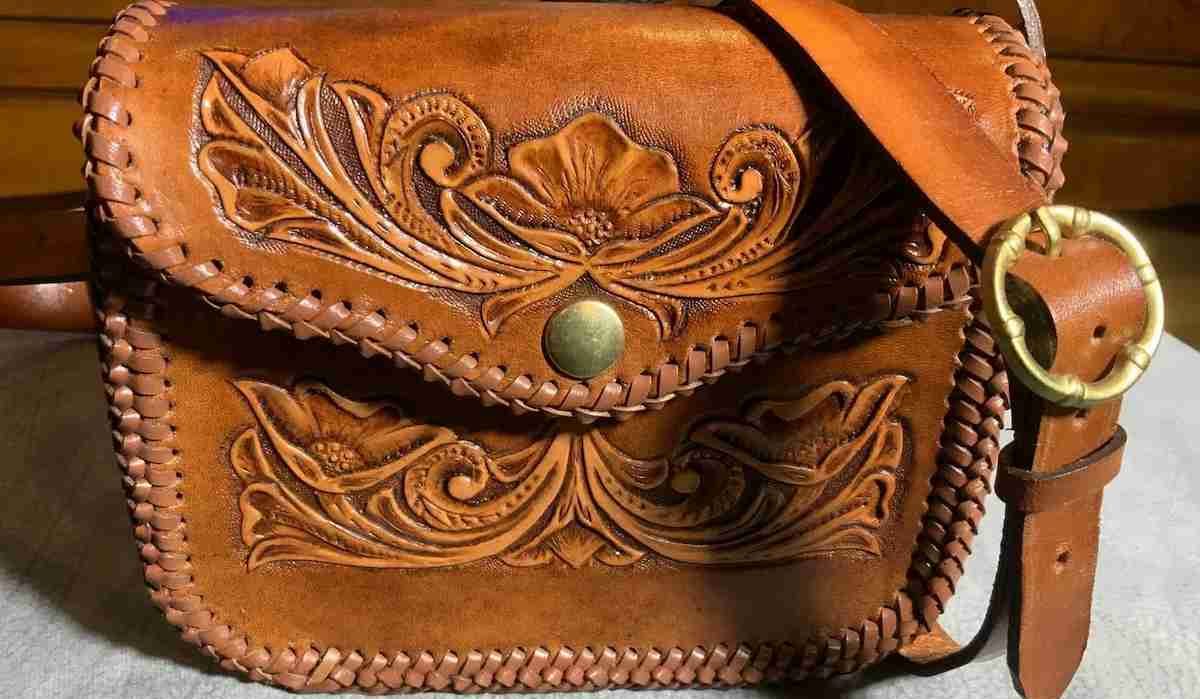 Buy higher-quality leather when you feel you can do a more complicated project. For embossing, cow-tanned leather is a good choice. Other types of leather are not suitable for all imprints. Never buy textured leather for engraving. Also, pay attention to the thickness of the leather. Keep in mind that not all countries measure skin thickness in grams – in some countries, it is measured in ounces. A thickness of 2-3 ounces (57-85 g) is too thin for embossing. Instead, opt for thicker leather – 3-4 ounces (85-115 g). Rawhide products retain their appearance for a long time, so only special engraving methods are needed. Embossed leather is exactly what makes items expensive, stylish, and high quality. Before the skin becomes a leather product, it is treated in a special way: tanned, polished, and painted. But keep in mind that some leather products also have an extra hardened layer – like shoes. The following guidelines outline the best method for embossing leather, but they only apply to soft rawhides that are not covered in shoe polish. Leather embossing at home is only possible if you have unpolished material. Bags and shoes are sometimes sewn from this leather. However, these products are not sold in fashion stores and can only be seen in handmade items.
Buy higher-quality leather when you feel you can do a more complicated project. For embossing, cow-tanned leather is a good choice. Other types of leather are not suitable for all imprints. Never buy textured leather for engraving. Also, pay attention to the thickness of the leather. Keep in mind that not all countries measure skin thickness in grams – in some countries, it is measured in ounces. A thickness of 2-3 ounces (57-85 g) is too thin for embossing. Instead, opt for thicker leather – 3-4 ounces (85-115 g). Rawhide products retain their appearance for a long time, so only special engraving methods are needed. Embossed leather is exactly what makes items expensive, stylish, and high quality. Before the skin becomes a leather product, it is treated in a special way: tanned, polished, and painted. But keep in mind that some leather products also have an extra hardened layer – like shoes. The following guidelines outline the best method for embossing leather, but they only apply to soft rawhides that are not covered in shoe polish. Leather embossing at home is only possible if you have unpolished material. Bags and shoes are sometimes sewn from this leather. However, these products are not sold in fashion stores and can only be seen in handmade items. 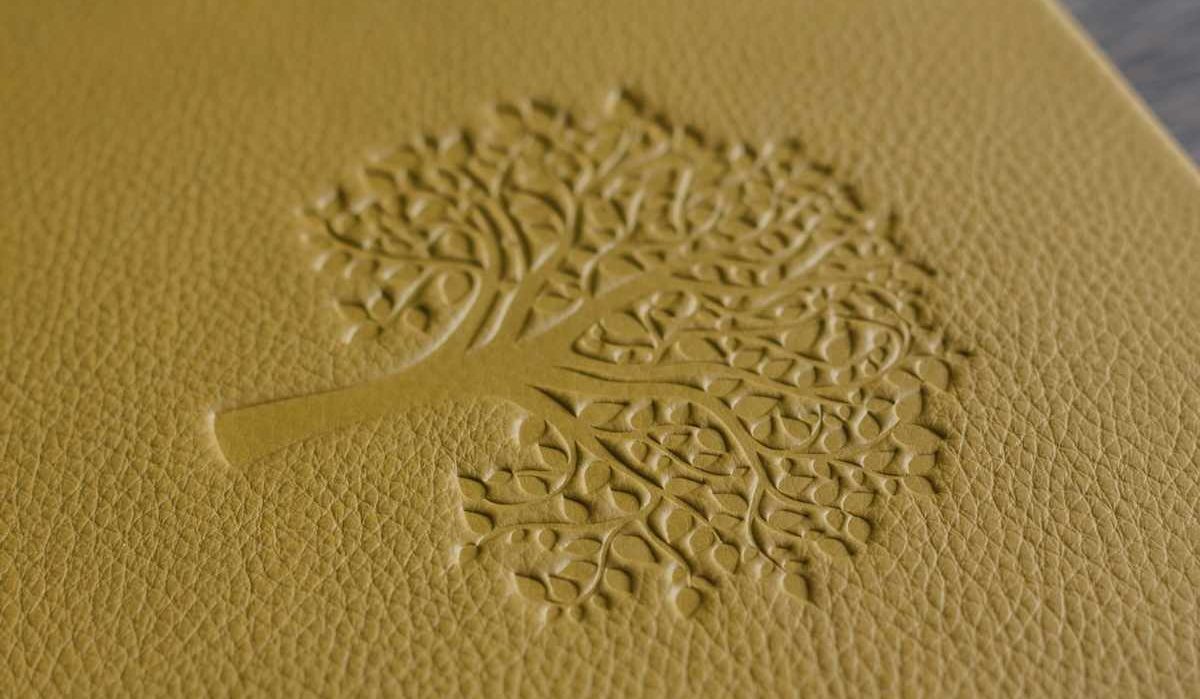 Although the whole process of customizing a gift with a leather print is quite simple, mastering the design and details can be difficult. But you don’t need to be a master to emboss or engrave leather at home – you just need to practice on scrap leather before moving on to finished leather goods. We’ll walk you through how to monogram leather using an embossing or engraving tool in a few easy steps. The two most common methods of hand tool leather are engraving and embossing. The easiest way to tell the two apart is to emboss compressed leather, while engraving actually removes some of the leather by cutting and scraping. Each can be used to customize leather gifts with different effects. It is easier to emboss unfinished leather, but it is also possible to emboss finished or dyed leather with a little practice. To emboss leather, you will need a few tools. Starting with a sturdy work surface, two to four C-clamps, a metal stamp stamped with the shape, pattern, or letter you wish to stamp, a cylinder to hold the stamp, a mallet, and of course, an unfinished piece or finished leather. Begin the embossing process by dampening the leather with a damp sponge, softening the leather and making it easier to work with.
Although the whole process of customizing a gift with a leather print is quite simple, mastering the design and details can be difficult. But you don’t need to be a master to emboss or engrave leather at home – you just need to practice on scrap leather before moving on to finished leather goods. We’ll walk you through how to monogram leather using an embossing or engraving tool in a few easy steps. The two most common methods of hand tool leather are engraving and embossing. The easiest way to tell the two apart is to emboss compressed leather, while engraving actually removes some of the leather by cutting and scraping. Each can be used to customize leather gifts with different effects. It is easier to emboss unfinished leather, but it is also possible to emboss finished or dyed leather with a little practice. To emboss leather, you will need a few tools. Starting with a sturdy work surface, two to four C-clamps, a metal stamp stamped with the shape, pattern, or letter you wish to stamp, a cylinder to hold the stamp, a mallet, and of course, an unfinished piece or finished leather. Begin the embossing process by dampening the leather with a damp sponge, softening the leather and making it easier to work with. 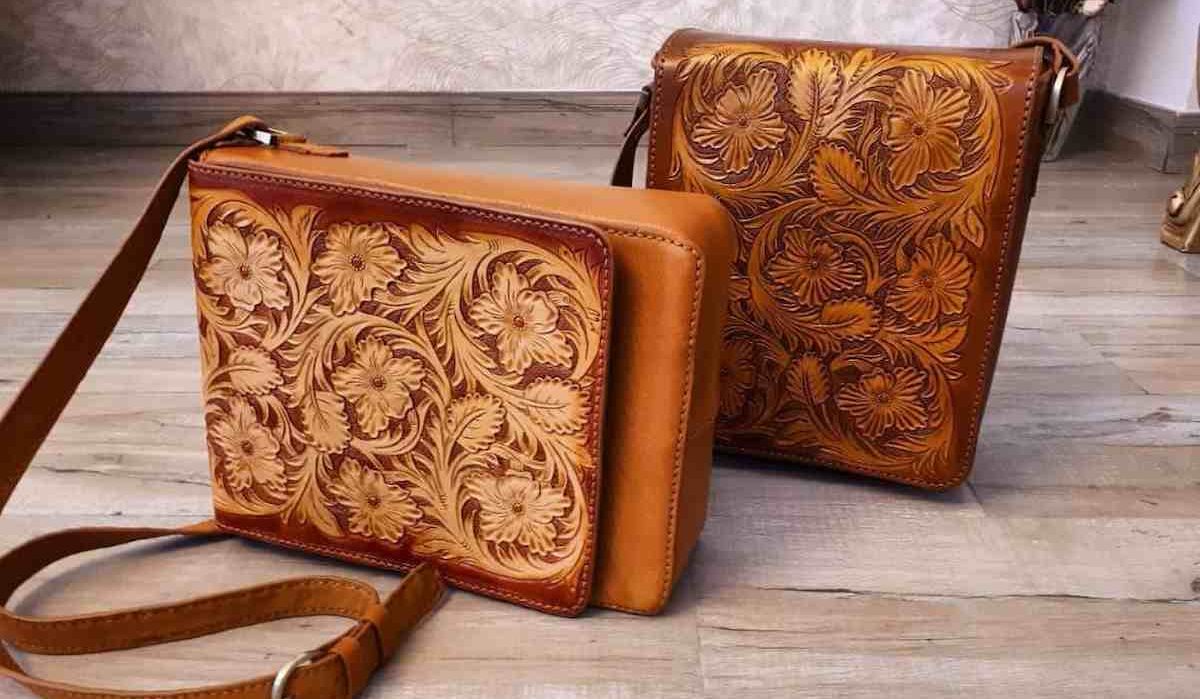 Wipe down the entire surface of the area you will be working on, but be careful not to soak it, as the more moisture the leather absorbs, the longer it will take to dry. Secure the leather to a solid surface. Use a clip to hold it in the right place, so it doesn’t move during the embossing process. Next, attach your first stamp to the cylinder tool and place its stamp face down on the leather, holding the cylinder in the non-dominant hand. Using a sturdy handle, strike the other end of the cylinder with a mallet to embed the stamp into the leather. Practice makes the process perfect, adjusting the pressure and number of cylinder strokes needed to achieve the desired embossing depth from the stamp. Leather engraving is similar to embossing; you’ll be using many of the same tools, and in fact, stamps are often very similar – they’re not just designed for pushing. Again, start with a proper work surface, two to four C-clips, a metal engraving pad, a cylindrical tool, a mallet, a bevel tool, and the leather you wish to engrave. Dab the area of leather you plan to engrave with a damp sponge. As with embossing, the water will soften your leather, but be careful not to soak the leather too much since it will take longer to dry.
Wipe down the entire surface of the area you will be working on, but be careful not to soak it, as the more moisture the leather absorbs, the longer it will take to dry. Secure the leather to a solid surface. Use a clip to hold it in the right place, so it doesn’t move during the embossing process. Next, attach your first stamp to the cylinder tool and place its stamp face down on the leather, holding the cylinder in the non-dominant hand. Using a sturdy handle, strike the other end of the cylinder with a mallet to embed the stamp into the leather. Practice makes the process perfect, adjusting the pressure and number of cylinder strokes needed to achieve the desired embossing depth from the stamp. Leather engraving is similar to embossing; you’ll be using many of the same tools, and in fact, stamps are often very similar – they’re not just designed for pushing. Again, start with a proper work surface, two to four C-clips, a metal engraving pad, a cylindrical tool, a mallet, a bevel tool, and the leather you wish to engrave. Dab the area of leather you plan to engrave with a damp sponge. As with embossing, the water will soften your leather, but be careful not to soak the leather too much since it will take longer to dry. 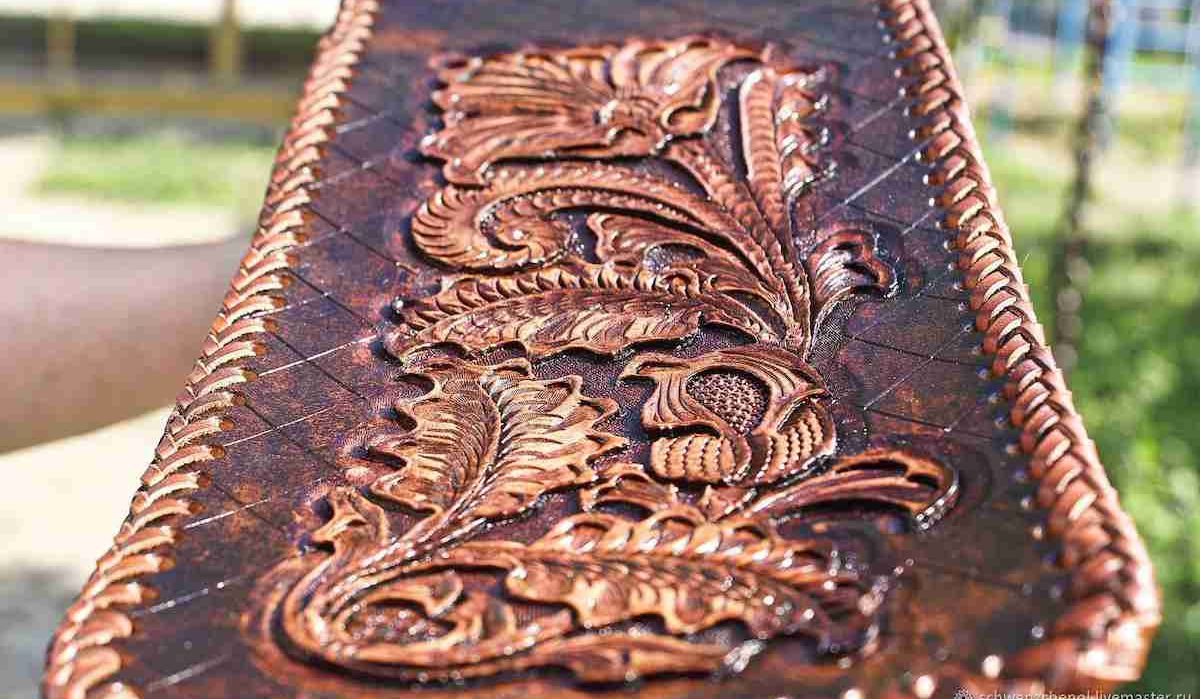 Use the C-clips to secure the leather to a flat, sturdy surface. Some types of engraving pads are attached to cylindrical tools, while others can be used on their own. If you can apply a stamp, do so by pointing it at the surface of the leather and tapping it several times with a mallet. It will take some practice to determine the pressure to apply. Repeat the process to create the pattern or letter you want to engrave. Tapping on the engraved stamp will cut the leather. You can leave the carved edges on the leather or skip to the next step for a more interesting look. One of the advantages of engraving is to give an embossed appearance to your patterns, shapes, or letters. After creating the shape with the stamp, use the bevel tool and work around the edge of the line created by the stamp. This will tilt into the cut and raise the edge, giving the engraving a raised finish. If you are starting with unfinished leather, add a dye to complete the process.
Use the C-clips to secure the leather to a flat, sturdy surface. Some types of engraving pads are attached to cylindrical tools, while others can be used on their own. If you can apply a stamp, do so by pointing it at the surface of the leather and tapping it several times with a mallet. It will take some practice to determine the pressure to apply. Repeat the process to create the pattern or letter you want to engrave. Tapping on the engraved stamp will cut the leather. You can leave the carved edges on the leather or skip to the next step for a more interesting look. One of the advantages of engraving is to give an embossed appearance to your patterns, shapes, or letters. After creating the shape with the stamp, use the bevel tool and work around the edge of the line created by the stamp. This will tilt into the cut and raise the edge, giving the engraving a raised finish. If you are starting with unfinished leather, add a dye to complete the process.
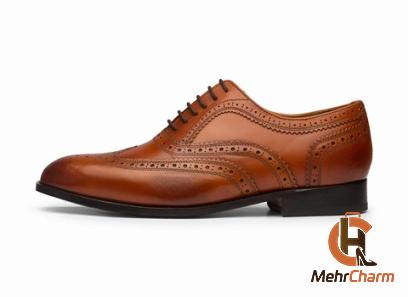
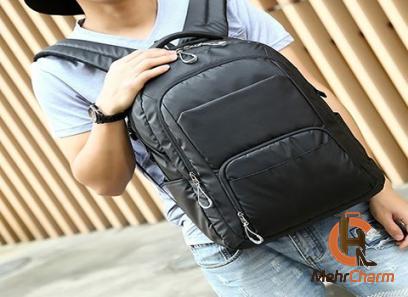
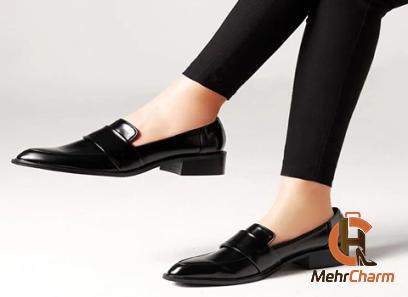
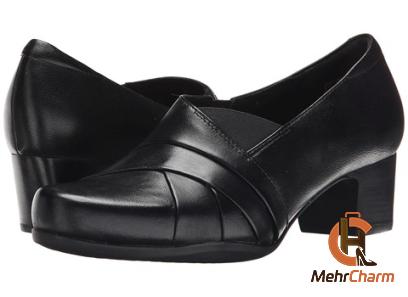
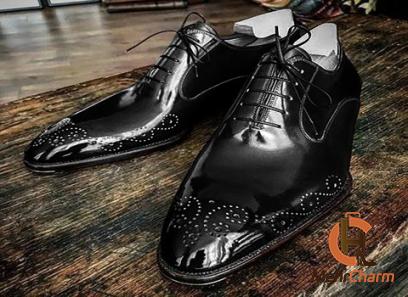
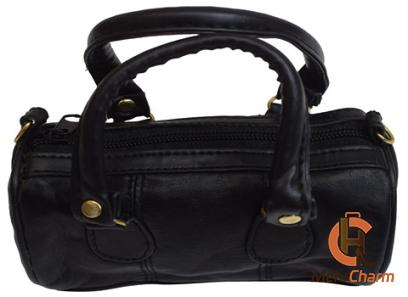
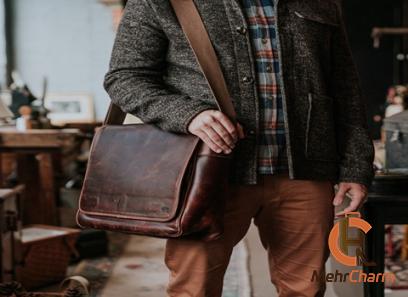
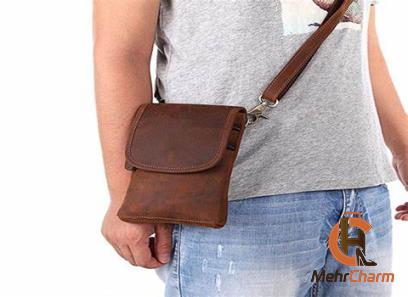
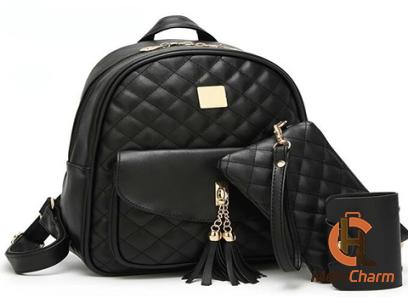
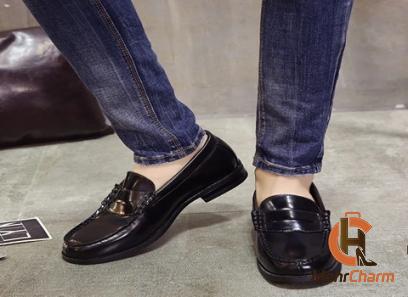
Your comment submitted.